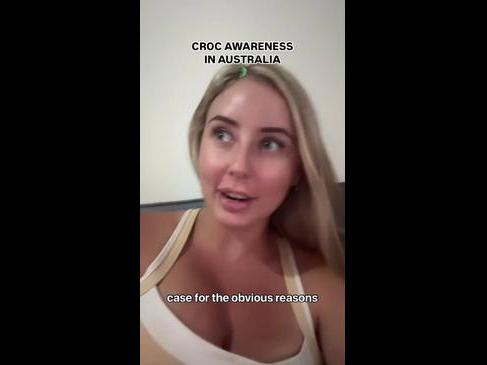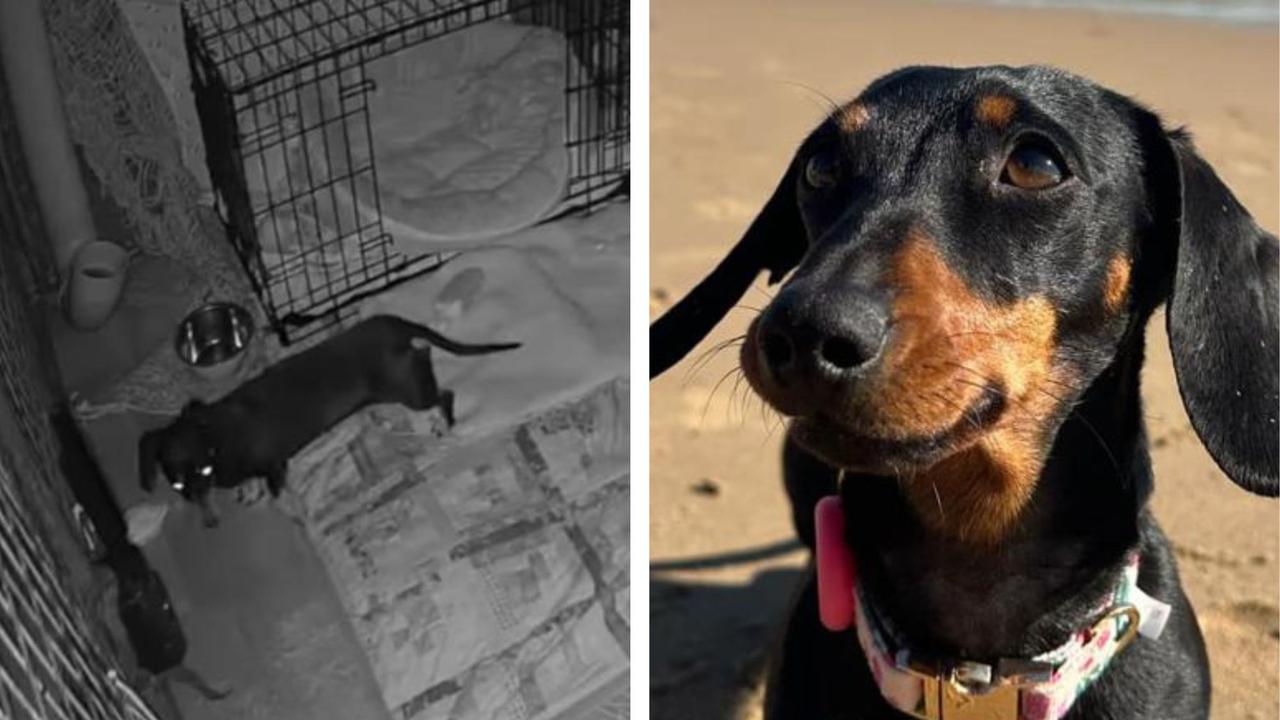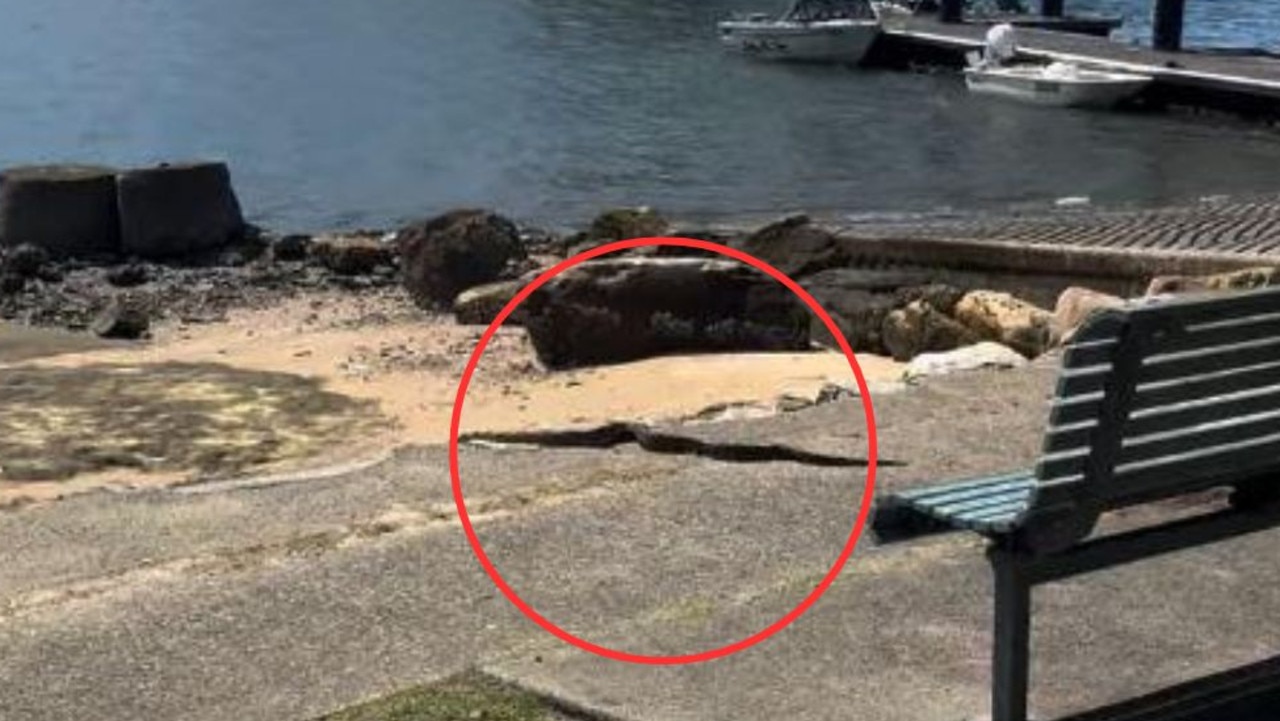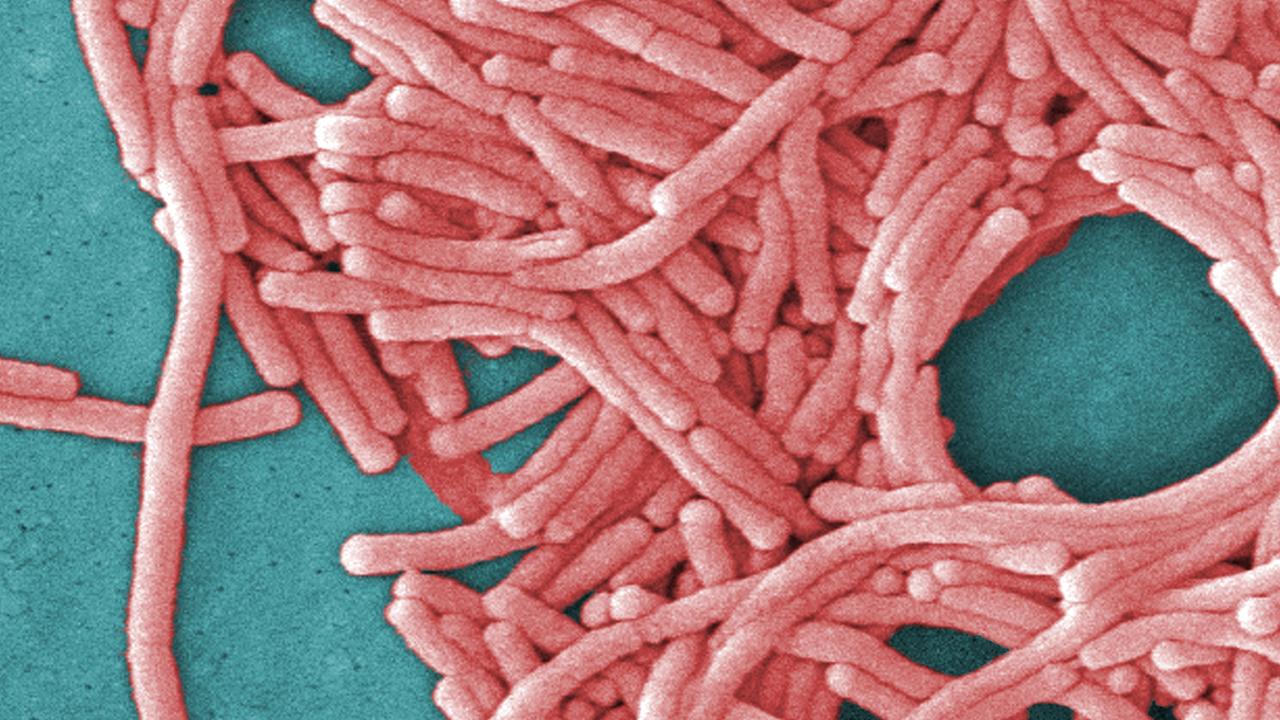Influencer slammed for boasting about feeding barbecue chicken to saltwater crocodile in Far North Queensland
A social media influencer has been slammed by authorities after she told her followers that she fed a hot chook to a crocodile in Far North Queensland.
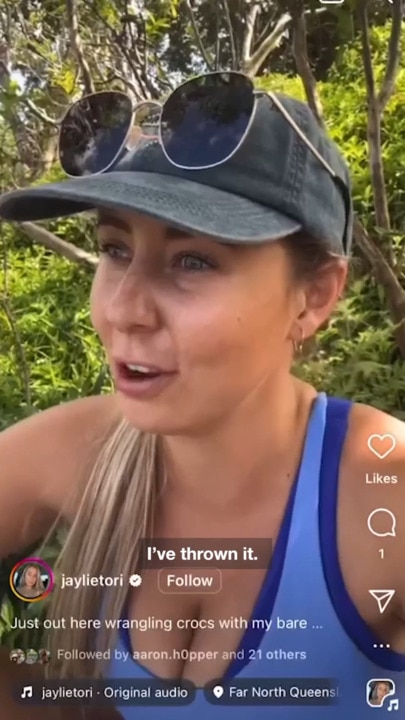
A social media influencer who boasted about feeding a barbecue chicken to saltwater crocodile in Far North Queensland has been slammed by authorities.
West Australian Jaylie Bonow posted a video online, under the name of Jaylie Tori, where she gloated about throwing a “hot chook” to a croc in the Russell River at Babinda.
“I’m in Far North Queensland at the moment, and I thought it’d be a good idea to get a whole chook and throw it to one of the crocs,” Ms Bonow said in a video that has since been deleted.
“There’s some big salties up here, and he’s absolutely loving it.”
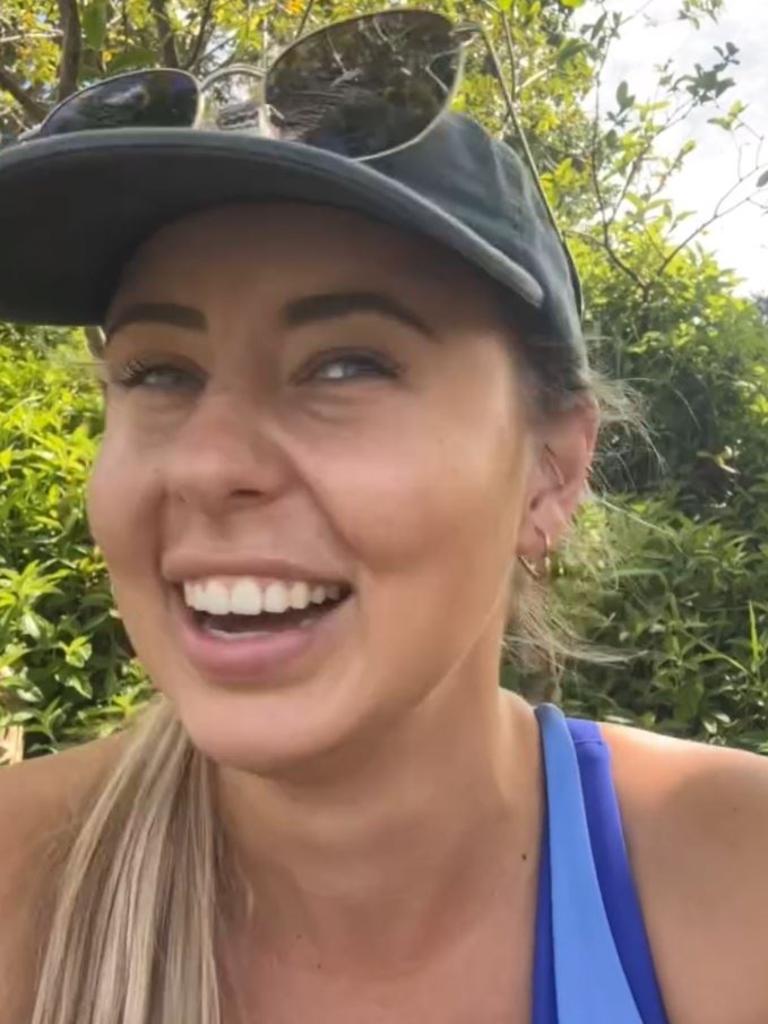
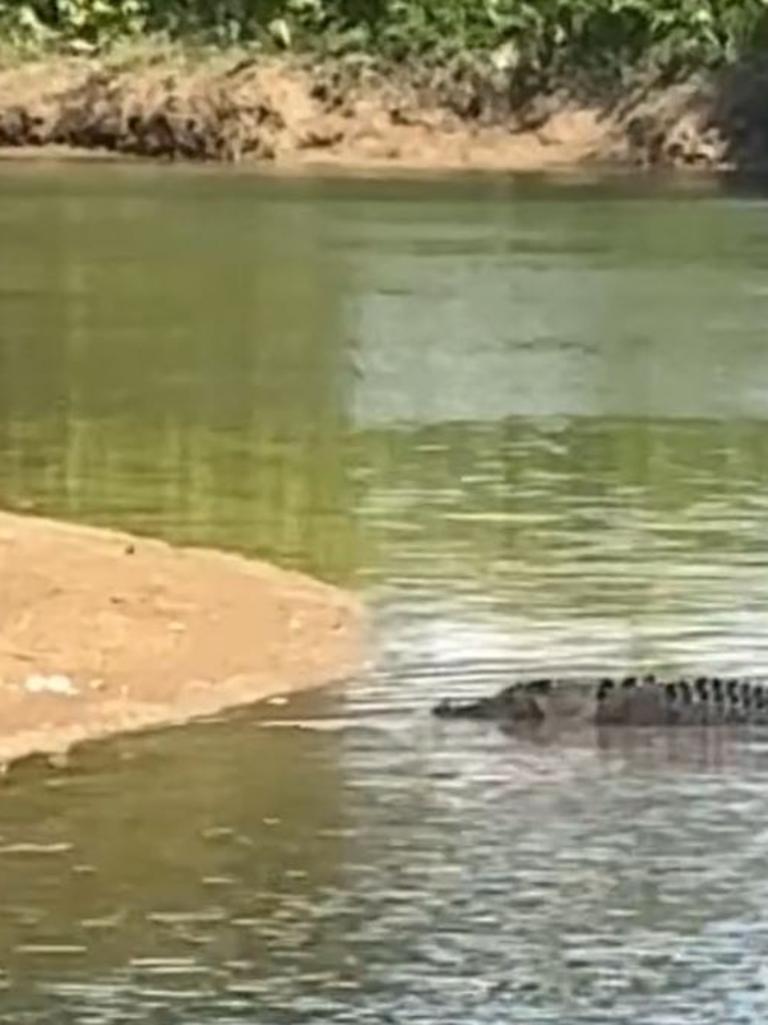
The influencer reassured her 76,000 followers that she “stayed away from the bank” when she threw the hot chook to the deadly creature.
The video received backlash from commenters, with one saying the reckless act put humans and crocs lives at risk and attracted significant fines.
Ms Bonow said in a separate video posted online that she had since learnt it was illegal to feed crocodiles in Australia and she wanted to raise awareness about the issue.
“I went to the local shop, bought a hot chook and took it down to the creek,” she said.
“Now this is stupid in any case, for the obvious reasons that it is so dangerous to feed saltwater crocs.
“I remained far away from the crocodile and I fed it from a very steep bank.
“Since then I have educated myself and now I know that feeding the crocs is detrimental to them and the public safety because it changes the behaviour of the crocs.”
Community Representation of Crocodiles (CROC) co-founder Matt Cornish said Ms Bonow’s act of throwing a barbecue chicken to a crocodile had caused great outrage among conservationists and the broader community of Far North Queensland.
“It is pretty evident in the community that people are aware that these things are not only illegal but immoral,” he said.
“We’ve seen just recently where a fatality occurred in Cooktown in Far North Queensland, which was a direct result of people feeding crocodiles and forming an habituation behaviour.
“Unfortunately, this lady’s behaviour could lead to a fatality in the future, but it could also lead to the removal of an iconic crocodile that is so well respected in the community by not only the community members but also traditional custodians to the land.
“This behaviour can just have a huge flow-on effect of negative behaviours associated with it.”
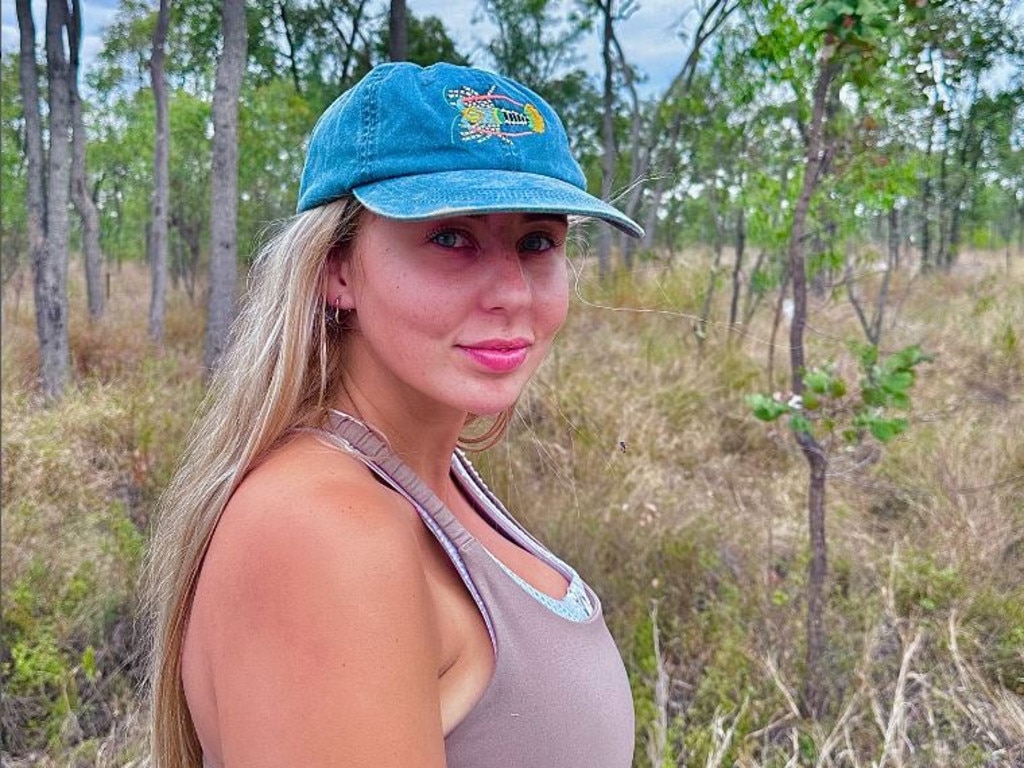
Mr Cornish said acts like this had been happening for years and the popularity of social media ensured this type of behaviour would continue.
“We’ve let the government know on multiple occasions that we need to increase the penalties for not only illegal behaviour around wild crocodiles but also flaunting it on social media,” he said.
“We believe that this is the perfect example where someone should receive a fine and needs to be held accountable so it prevents any copycat behaviour that may follow.”
A Department of Environment, Science and Innovation spokesperson said deliberately feeding crocodiles could pose huge risks to other visitors and increase the chances of an attack.
“That is why penalties were recently increased for unlawful behaviour that places lives at risk,” the spokesperson said.
“It is illegal to feed estuarine crocodiles in Queensland and behaviour that portrays, promotes or encourages people to feed them is totally irresponsible.”
The maximum penalty in Queensland for feeding crocodiles in the wild carries a fine of $26,615.
Ms Bonow has been contacted for comment.

